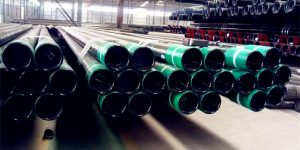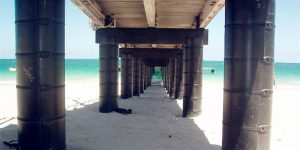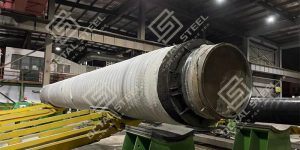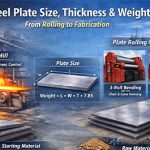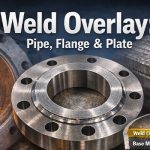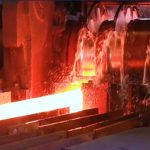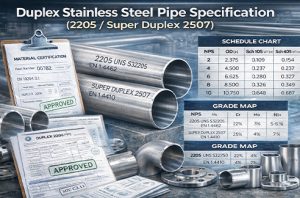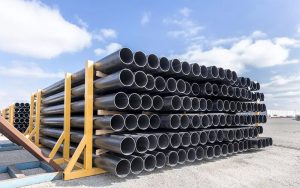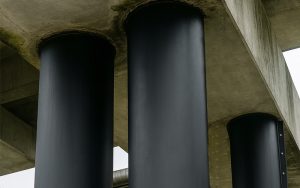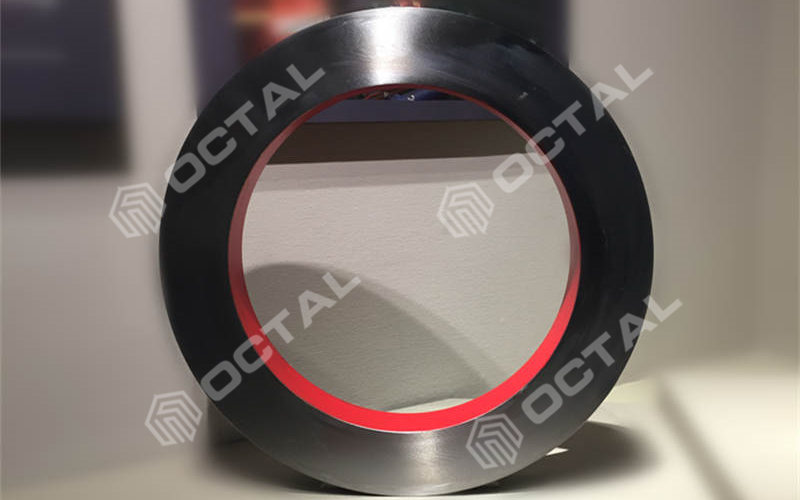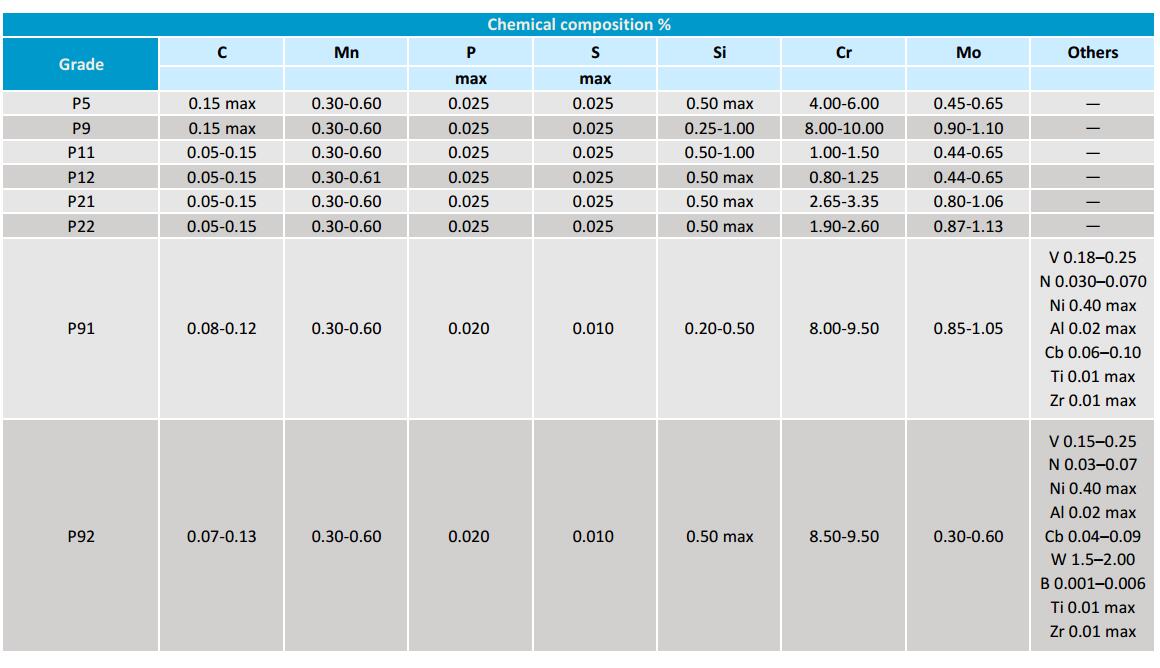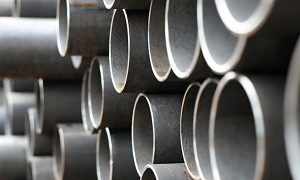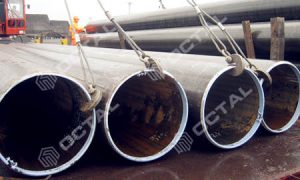ASTM A335 P22 Pipe Specification (Chrome Moly Pipe)
ASTM A335 P22 / ASME SA335 Grade P22
Chrome Moly Alloy Pipe in Seamless
Seamless pipe by hot rolled or cold drawn with proper heatreatment
Sizes: 1/2” to 24”
Wall thickness: SCH 40, SCH STD, SCH 80, SCH XS, SCH 160
Length: 6 meters, 12 meters or customized.
Ends: PE (Plain End), BE (Beveled Ends)
ASTM A335 P22 pipe / ASME SA335 P22 pipe is a seamless chromium-molybdenum alloy steel pipe widely used for high-temperature and high-pressure services in power generation, refineries, and petrochemical industries. The alloy composition of P22 includes 1.90–2.60% chromium and 0.87–1.13% molybdenum, which enhances its resistance to oxidation, creep, and thermal fatigue under prolonged exposure to elevated temperatures.
With a minimum yield strength of 205 MPa and a tensile strength of 415 MPa, ASTM A335 P22 provides reliable mechanical properties while maintaining good weldability and formability. Compared to carbon steel, chrome moly alloys like P22 deliver superior performance in environments where pipes are subjected to thermal cycling, pressure fluctuations, and aggressive media. For this reason, P22 seamless pipe is a preferred material for boilers, heat exchangers, superheater tubes, steam pipelines, and process piping systems operating above 540 °C.
Equivalent Material for Fittings, Flanges, Plates
Pipe fittings standard: ASTM A234 WP22
Flange Standard: ASTM A182 F22
Steel Plate Standard: ASTM A387 Grade 22/ ASME SA387 Grade 22
Welded pipe standard: ASTM A691 2-1/4 CR
P22 pipe material has high toughness and high wear and tear resistance, it could be used to manufacture pipe fittings like elbow, tee, reducers in ASTM A234 WP22 chrome moly pipe fittings.
ASTM A335 Standard Specification
The ASTM A335 standard, formally titled Standard Specification for Seamless Ferritic Alloy-Steel Pipe for High-Temperature Service, defines the requirements for seamless ferritic alloy steel pipes designed to operate under elevated temperature and pressure conditions. The specification applies to both nominal wall thickness and minimum wall thickness pipes, providing engineers with flexibility in design while ensuring consistent quality and dimensional control.
Pipes manufactured to ASTM A335 must be capable of bending, flanging (vanstoning), and other forming operations without compromising mechanical integrity. In addition, the material must be fully suitable for fusion welding, a critical requirement for assembling pipelines and high-pressure components in boilers, refineries, and petrochemical plants. Proper grade selection under ASTM A335 depends on multiple factors, including design specifications, required mechanical properties, service environment, and high-temperature performance characteristics such as creep resistance and oxidation stability.
Within this standard, ferritic alloy steels are defined as low- and intermediate-alloy steels containing up to and including 10% chromium. This controlled chromium content improves oxidation resistance at elevated temperatures without compromising toughness or weldability. When alloyed with molybdenum and other strengthening elements, these steels provide the high-temperature endurance and structural integrity required for long-term service in critical applications.
Referred standards for making ASTM A335 P22 Pipe
a. ASTM A999/ A999M, Standard specification for common requirements for stainless and alloy steel pipe
b. ASTM A92, Hardness test methods for steel materials
c. E213, Instructions and practice for ultra sonic testing of steel pipe and tube
d. E309 Eddy-Current Examniation methods for steel pipe products
e, E381, Inspection methods for steel bars, beams, profiles, billets and forgings.
f, E527, Numbering metals and alloys practices
g, E570, Instructions for flux leakage examniation of ferromagnetic steel pipe products
Dimension standard: ASME B36.10M
Manufacturing process: Hot finished or Cold drawn
Heat treatment methods:
Full or isothermal anneal or normalize and temper or subcritical anneal
Normalize and temper
Tests
Tensile tests: Transverse and Longitudinal
Flattening test
Hardness test
Bend Test
ASTM A335 P22/ASME SA355 P22 Chemical Composition
Chemical Composition and for other P grade Pipe
ASTM A335 P22 Mechanical Properties
Elongation: Longitudinal 30% or Transverse 20% for pipe thickness above 8mm.
Chrome Moly Alloy ASTM A335 pipe
ASTM A335 pipe called chrome moly pipe as they have a high level of Chromium and Molybdenum presence in it. While Molybdenum increases the overall strength, resistance, elasticity, hardenability and overall quality, moly ensures that the material is more resistant to softening, restrains the growth of grains and lessens the chances of embrittlement. It is the single additive that is responsible for the increase in high temperature resistance (to 540-750°C) and it also improves the corrosion resistance to steel.
Key Elements – Chromium
Chromium is a key component that is used in the manufacture of stainless steel. If the chromium levels are above 12%, it can be classified as stainless steel. The oxidation resistance potential of chrome is irreplaceable even in elevated temperatures. The hardness, tensile and yield strength is better at standard temperatures. Due to the composition of the material, it is ideal to be used in power plants, refineries, petro-chemical plants and other oil field services when there is transportation under high temperatures and pressures involved.
ASTM A335 P11, P22 – Common Use Grade
ASTM A335 P11 and P22 are most common use in Chrome Moly Alloy Pipes for high temperature environment, for power industry and petro-chemical plants.
Our Supply Range
Standard and Grades: ASTM A335 / ASME SA335 Grade P11, P22, P5, P9, P11
Material types: Chrome Moly Seamless Alloy
Manufacturing types: Seamless pipe by hot rolled or cold drawn
Sizes: 1/2” to 24”
Wall thickness: SCH 40, SCH STD, SCH 80, SCH XS, SCH 160
Length: 6 meters, 12 meters or customized.
Surface treatment: Polished, Varnished, 3PE, FBE
Ends: PE (Plain End), BE (Beveled Ends)


